Just In
- 5 hrs ago

- 6 hrs ago

- 9 hrs ago

- 13 hrs ago

Don't Miss
- Finance
 Gold Prices In US: Yellow Metal Rates Surge Amid Escalating Tensions In Middle East; Hit Record High
Gold Prices In US: Yellow Metal Rates Surge Amid Escalating Tensions In Middle East; Hit Record High - News
 There's No INDIA Alliance In West Bengal, Says Mamata Banerjee, Alleges Congress Joined Hands With BJP
There's No INDIA Alliance In West Bengal, Says Mamata Banerjee, Alleges Congress Joined Hands With BJP - Sports
 PAK vs NZ 2nd T20I: Will Rain play spoilsport in Rawalpindi on Saturday?
PAK vs NZ 2nd T20I: Will Rain play spoilsport in Rawalpindi on Saturday? - Movies
 Arti Singh & Dipak Chauhan Haldi: Wedding Function Kickstarts, Bride-To-Be Says 'Dhol Nagare Bajne Chahiye'
Arti Singh & Dipak Chauhan Haldi: Wedding Function Kickstarts, Bride-To-Be Says 'Dhol Nagare Bajne Chahiye' - Automobiles
 Suzuki Swift Hatchback Scores 4 Star Safety Rating At JNCAP – ADAS, New Engine & More
Suzuki Swift Hatchback Scores 4 Star Safety Rating At JNCAP – ADAS, New Engine & More - Education
 NLSIU Announces the Rajiv K. Luthra Foundation Grant
NLSIU Announces the Rajiv K. Luthra Foundation Grant - Technology
 Dell Introduces AI-Powered Laptops and Mobile Workstations for Enterprises in India
Dell Introduces AI-Powered Laptops and Mobile Workstations for Enterprises in India - Travel
 Journey From Delhi To Ooty: Top Transport Options And Attractions
Journey From Delhi To Ooty: Top Transport Options And Attractions
8 Ayurvedic Herbs To Get Long Hair
Ayurveda is regarded as the fifth Veda, which contains solutions regarding any health issues. From curing your stomach problem to solving your hair-related issues, Ayurvedic remedies are there to answer all your problems.
Nowadays, people are suffering from various hair problems. Dandruff, itching, bacterial growth, etc, all can be the reasons for hair fall. Ultimately, you get bald at a very early age. But, there are certain natural herbs that you can use to get long hair.
8 Effective Tips To Grow Hair Back Naturally
Long, healthy and bouncy hair is a dream of everyone. With Ayurvedic herbs to get long hair, your dream can come true. From ancient times, people are using several natural herbs in order to grow long lustrous hair.
And now, these are used to make herbal hair care products. Instead of using the harsh chemicals on your hair, try to go in for these Ayurvedic herbs to have long hair.
These are almost free from any side effects. You may think that Ayurvedic products are difficult to get. However, herbs like shikakai, reetha, etc, are easily available in the market.
18 Remedies To Make Your Hair Grow Faster & Thicker
There are certain stores as well where you can find these products in their powdered form to make your task simple and easy.
So, no more wasting money on chemical products. Go in for natural herbs for having long hair and get beautiful shiny lengthy hair within a few weeks.
Read on to know more about Ayurvedic herbs to get long hair.
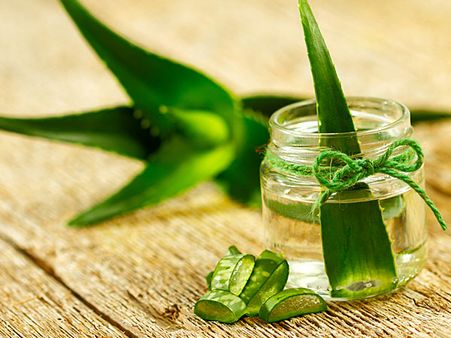
1. Aloe Vera:
To promote hair growth, this is one of the best herbal remedies. It has properties that augment hair growth and the antibacterial fundamentals are there to prevent any bacterial attack. Besides, it moisturises your hair extensively.
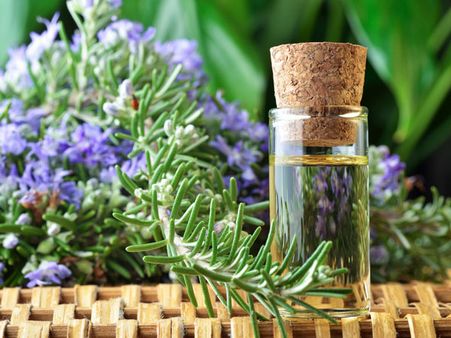
2. Rosemary:
From earlier times, rosemary was famous in treating untimely hair fall and baldness. This herb improves blood circulation throughout your scalp and hair roots, and therefore, reduces hair fall. If you try it with olive oil, you'll get better results too.

3. Basil:
With a high content of magnesium, this herb helps you in solving lots of health issues. Besides, the antibacterial properties eliminate the chances of a bacterial attack, strengthen the hair roots and stop hair breakage. Moreover, basil increases blood circulation to your scalp.

4. Burdock Root:
Consider it one of the best Ayurvedic herbs to have long hair. The phytosterol compounds in burdock prevent hair thinning and enhance the blood circulation to the hair follicles. Thus, having long hair is easy with the use of this oil topped with some olive oil to add the extra effects.
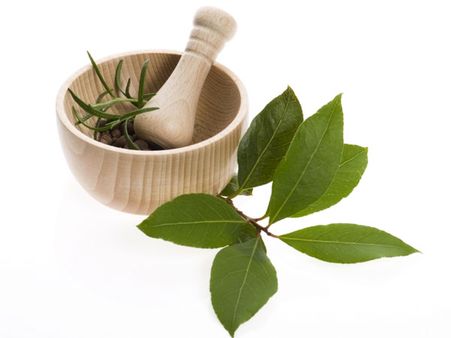
5. Bhringraj:
The scientific name of this is Eclipta Alba, which is popularly known as Maka. This is one of those Ayurvedic herbs that has an immense popularity for treating hair fall and enhancing hair growth. This is mentioned in a lot of Ayurvedic manuscripts as well and now it is widely popular.
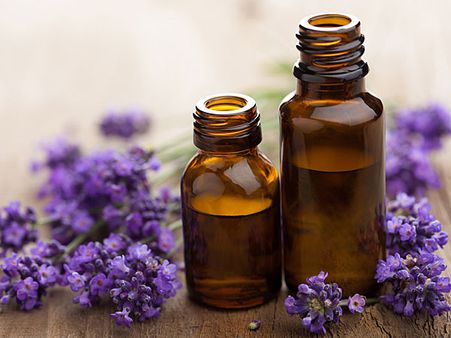
6. Lavender:
What are the benefits of using lavender to treat hair problems? This is the herb that boosts hair growth and prevents hair thinning, which creates baldness. Moreover, the healing properties in lavender soothe any irritation on your scalp and fight against dandruff, which is the vital cause for hair fall.

7. Calendula:
By augmenting blood circulation to the hair follicles and increasing the production of collagen, calendula helps in reducing hair fall and boosts the re-growth of hair. It is also rich in antioxidants and several minerals that provide the needed amount of nutrients to your hair. You can use calendula oil directly or with some other oil.
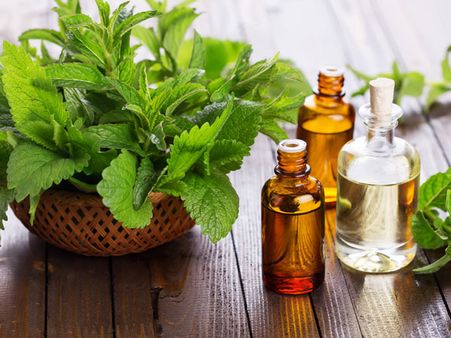
8. Peppermint:
To conclude the list of Ayrvedic herbs to have long hair, this can be the perfect choice. It improves the growth of hair follicles. So, getting long and strong hair with peppermint oil is very easy. Besides, it gives a cooling effect from any itching sensation or a scalp irritation.
-
 healthHaving Chicken Soup At Home Can Cure These Health Issues
healthHaving Chicken Soup At Home Can Cure These Health Issues -
 healthAyurvedic Items To Keep With You While You Are Traveling
healthAyurvedic Items To Keep With You While You Are Traveling -
 healthWhy Morning Is The Best Time To Detox According To Ayurveda?
healthWhy Morning Is The Best Time To Detox According To Ayurveda? -
 healthDurga Puja 2023: Health Benefits of Parijat Leaves And Flowers
healthDurga Puja 2023: Health Benefits of Parijat Leaves And Flowers -
 healthAyurvedic Wisdom: Panchamrit's Surprising Health Benefits
healthAyurvedic Wisdom: Panchamrit's Surprising Health Benefits -
 healthUnveiling the Power of Turmeric Ghee: An Ancient Ayurvedic Secret!
healthUnveiling the Power of Turmeric Ghee: An Ancient Ayurvedic Secret! -
 beautySay Goodbye to Dry and Damaged Hair with These Ayurvedic Remedies!
beautySay Goodbye to Dry and Damaged Hair with These Ayurvedic Remedies! -
 beautyUnlocking Ayurveda's Secrets: Natural Hair Care Tips For Hair Loss
beautyUnlocking Ayurveda's Secrets: Natural Hair Care Tips For Hair Loss -
 beautyHair Loss From Stress? Try These Ayurvedic Remedies
beautyHair Loss From Stress? Try These Ayurvedic Remedies -
 healthFrom Illness To Wellness: Traditional Home Remedies For Dengue That Work
healthFrom Illness To Wellness: Traditional Home Remedies For Dengue That Work -
 healthDoctors Day: The Future of Medicine in India: Top 5 Recent Medical Innovations
healthDoctors Day: The Future of Medicine in India: Top 5 Recent Medical Innovations -
 healthDoctors’ Day: The Early Indian Medicine Inventions; Its Not Just Ayurveda!
healthDoctors’ Day: The Early Indian Medicine Inventions; Its Not Just Ayurveda!


 Click it and Unblock the Notifications
Click it and Unblock the Notifications



